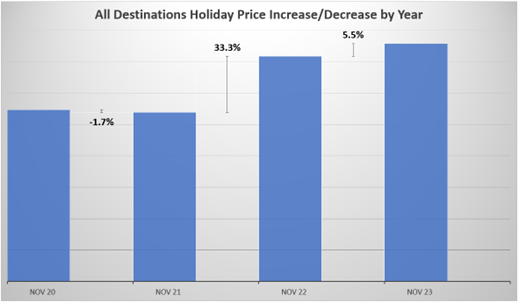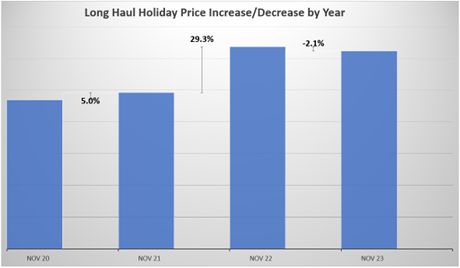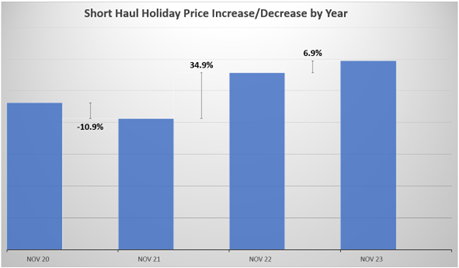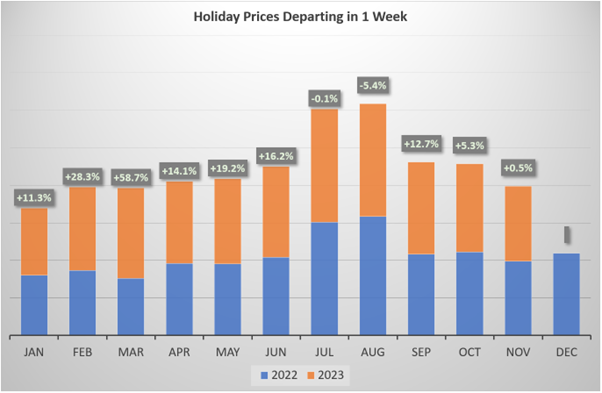Advertisements
Monthly Holiday Price Index - November 2023
Daniel Riley December 08th, 2023 2,059 views
Egypt Prices Fall by 43% in November
Every month, Cheeky Trip analyse over 66 million holiday prices. Overall, November 2023 prices increased by 5.5% year-on-year, compared to a rise of 33% in November 2022. However, a couple of major winter sun destinations saw dramatic November price drops; Cape Verde prices fell by 33%, but Egypt saw the biggest fall of 43% year on year.

These large price drops dampened average overall prices to mid/long haul destinations (outside Europe), which decreased by around 2% this November, compared to a 29% increase between November 2021 and 2022. Some long haul destinations are seeing price rises, particularly the Caribbean as it hits peak season.
Short haul holiday prices increased by 7% overall compared November 2022 prices. This is less than Octobers short-haul price increases of 13% year-on-year, and vastly less than the 35% increase between November 2021 and 2022. Mainland Spain saw the largest short haul price increase of 22%, closely followed by the Canaries (+18%). Prices to Greece and Turkey fell by 4% and 12% respectively.


Cheeky Trip also analysed November’s last minute holiday prices, which were virtually flat year-on-year.

“The big drop in prices to Egypt could indicate operators to that region are facing a tough time,” says Steve Campion, Managing Director at Cheeky Trip. “Typically, travel prices are influenced by supply and demand. So a fall as big as 43% indicates demand may have really dropped off at the moment, possibly due to concern about conflict in Israel. However, we advise consumers to always check Foreign Office travel advice before they book any holiday and that advice is that it is safe to travel to Egypt. Sharm El Sheikh and Hurghada are hundreds of miles away from the border, so there are plenty of opportunities to pick up a safe and sunny winter holiday bargain,” continues Steve.
Steve also commented on the flattening of prices overall, “When we look at the pricing charts, it is interesting to see how the price increases during the initial bounce-back from the COVID period between 2021 to 2022 have now levelled off to a more sustainable level,” says Steve.











